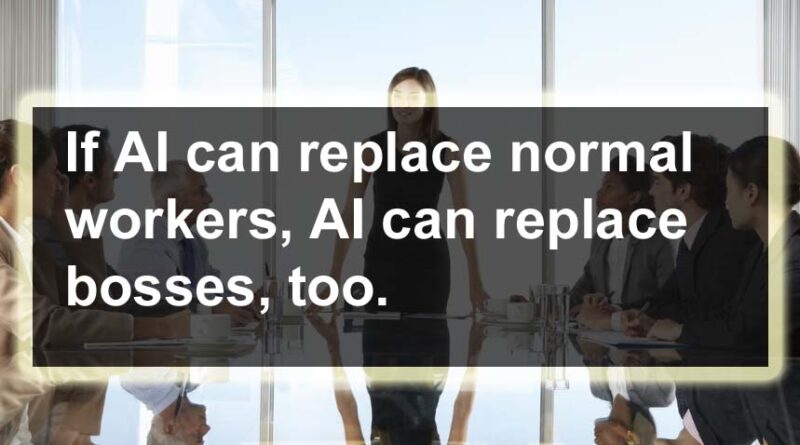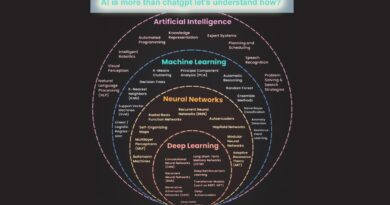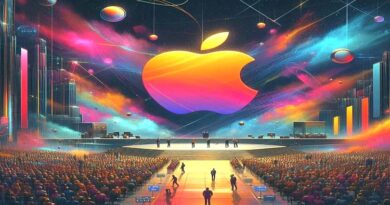If AI can replace normal workers AI can replace bosses too
Since AI can replace normal workers, AI can replace bosses as well. In as much as technology is advancing in different areas, artificial intelligence is one of the major fronts in this advancement. At the beginning, it was understood that AI might cause job elimination mainly at the lower tiers of the economy where people perform monotonous tasks. Nevertheless, AI capabilities have broadened over time, which has given rise to debates on its usability in covering management positions as well.
Ai that can read images
AI that can read images uses advanced computer vision technology to analyze and interpret visual content. This AI can identify objects, text, and scenes within images, providing insights and enhancing accessibility. It’s commonly used in applications like image recognition, text extraction, and automated content tagging, offering valuable solutions for businesses and developers.
AI at work: A brief history If AI can replace normal workers
First, the application of AI was limited to basic or routine tasks. In the more recent past, improvement in machine learning and data analytics have made it posible for AI to perform higher level tasks.
If AI can substitute normal workers, AI can substitute bosses as well. This evolution is not only reshaping work but also how work is being organized and executed.
Leadership and Decision-Making with If AI can replace normal workers
Another of the fundamental roles of bosses is decision-makers. Since AI systems can efficiently combine large amounts of data and perform high-quality analysis, they can help to make strategic decisions.
If AI can substitute normal workers, AI can substitute bosses since it can use prediction to predict tendencies and results of an organization’s operations.
Improving Efficiency and Productivity
AI can integrate the working processes to improve efficiency and minimize congestion.
Since AI is capable to replace normal workers, there is no reason why AI cannot replace bosses, by performing administrative works, time tabling and appraisals.
This enables the human bosses to pay more time on other important aspects of the leadership positions they hold.
Challenges and Ethical Considerations
Despite the potentiality of AI applying for managerial positions, there are challenges associated with such a possibility.
Thus, if AI can eliminate normal workers, AI can also eliminate bosses; however, there are some such as bias in AI algorithms and morale of the employees.
Efforts must be made to make sure that the use of AI integration does not lead to a gap between a company and its employees.
The Future of Work
The future of workplace will be a combination of both automation robotics and human beings.
If AI can replace normal workers, it means that bosses can also be replaced by AI, thus, the concern should shift to how the AI systems can enhance human capacities.
These combinations can result in beneficial effects where integrated AI and human intelligence are used to foster and create better workplace environments.
Trends and evolution of artificial intelligence in the workplace
Since, AI is good enough to replace normal workers, it is good enough to replace bosses as well.
This evolution has caused changes in organizational dynamics and changed the description of roles. With the progression of AI technologies, AI is becoming not just a repetitive work tool but acquiring higher-order decision-making work done by managers and executives.
The Beginning of the Use of AI to Replace Human Workers
AI was originally seen in terms of capacity to automate routine activities in a workplace.
Most of the jobs that involved repetitive tasks such as manufacturing, data entry, and customer service experienced massive changes.
Machines and software driven by AI started to replace activities that needed nearly no human interaction, which further enhanced the performance and productiveness of organisations.
The Shift to Managerial Positions
The functionality of the AI systems started to develop with the time and they began to penetrate areas involving higher cognitive abilities.
Hiring processes were started to be supported by AI algorithms in the planning and evaluating of its strategies.
This shifted towards the belief that if AI can replace normal workers, AI can replace bosses, too, perspective began gaining traction.
Companies started realizing that AI may be used in decision-making by providing accurate information.
AI as Virtual Bosses
In the recent past, the prospects of AI assuming managerial roles are no longer a notion but a reality.
Now, AI systems control staff, determine the distribution of staff and resources, and conduct performance evaluations.
These AI bosses are bias free, follow organizational rules without favoritism, and can work within complex datasets in record time.
This transition supports the idea, that if AI can replace normal worker, it can replace bosses as well.
Challenges and Considerations
Of course, there are benefits and drawbacks to using such tools as the following: There is a need for trust and transparency in making decisions in AI.
AI management also has its disadvantages and challenges that employees may find hard to embrace. Other ethical issues include the abandonment of employment in organizations and the elimination of human interaction in managerial work.
Still, the trend is overwhelming and clearly points towards a higher use of AI in managerial capacities in the future.
Early Applications: Substituting Repetitive Activities
If normal workers can be easily substituted by AI, then bosses can also be substituted by AI.
The introduction of AI in workplace was initially to complete the monotonous work. Some of the early applications included inputting of data, making schedules and simple interacting with clients.
Specifically, AI technologies such as chatbots and different AI-powered instruments used for reporting minimized the demand for a human touch in such monotonous tasks, thus demonstrating that AI is capable of performing the functions that were previously assigned to junior employees.
Streamlining Administrative Work
AI has enhanced administration work given that it can reduce costs by providing efficient solutions.
People are also no longer needed to type emails, schedule meetings, or produce reports since these processes can be carried out by automated systems.
Using artificial intelligence programs like machine learning can be used to determine schedule collisions and other activities to enable human workers to undertake more important activities.
Enhancing Customer Service
Chatbots and virtual assistants are typical examples of how AI is encroaching on the realm of customer service by assuming routine functions.
Such tools can take the questions, address the frequently asked questions and offer support at any time. The AI system can handle even more complex interactions when it is fully developed, decreasing the demand for human attendants to address customer inquiries or complaints.
Data Processing and Analysis
One of the main advantages of AI is the ability to process large amounts of information, time efficiently.
Peculiarly, in finance or healthcare, AI systems are capable to analyze data to detect patterns, make conclusions, or even foretell possible scenarios.
Besides time-saving effort, this capability also enhances the decision making process as it offer better and current info.
Advanced Capabilities: Integration of Artificial Intelligence in Decision Making
If they think that AI can replace normal workers, they should also know that AI can replace bosses.
This can hardly be seen as mere speculation considering the state of the art in AI technologies.
These AI systems are no longer just automating routine activities but are also able to determine the future course of action that was traditionally in the purview of the managers.
The Role Of AI In Strategic Management
AI has demonstrated remarkable strengths in the domain of strategic planning because of its capacity to process vast arrays of information in a very short time.
Businesses are using AI today to forecast sales, optimize operations, and improve efficiency.
This means that if AI can replace normal workers, then AI can replace bosses too, through undertaking such critical decision making roles.
Enhancing Operational Efficiency
Artificial intelligence is making processes automated across different business sectors.
From source procurement to demand fulfilment and production line planning, AI solutions are easing human managers from repetitive operations.
It also enhances the efficiency of work and at the same time enables human managers to get occupied with more artistic and innovative tasks.
Human-AI Collaboration
While some may be scared that their human bosses are going to be replaced by AI, it is rather expected to be a shared system.
AI can help managers by bringing relevant information and recommendations that can facilitate the decision-making process of the manager.
This mutually beneficial relationship demonstrates that if AI can replace normal workers, then AI can replace bosses as well, although they might retain a consultant role.
AI in Performance Management
Management is now deploying AI systems to conduct performance appraisal of employees in a more manageable manner. Thus, AI can potentially offer fairer performance evaluations based on the analysis of such parameters as productivity, level of activity, and overall effectiveness. This capability means that in case normal workers can be substituted by AI, bosses also may be substituted by AI in case of assignments that presuppose unbiased evaluation.
Ethical Considerations
When thinking about If AI can replace normal workers, AI can replace bosses, there are special ethical concerns raised.
Some of the questions that arise include; job losses, responsibilities and risks associated with AI decision making, and the importance of ethical AI decisions.
Businesses need to address these issues strategically so that the application of AI will have positive consequences for all parties involved.
Case Studies: Management of AI
If AI can replace normal workers, AI can replace the bosses as well. This is not just a concept on the drawing board; it is assuming practical shape across several sectors.
Here is the list of several fascinating cases when AI starts to take the position of a manager and change the work environment.
AI in Retail Management
One field, which has seen increased adoption of AI, is the retail business. There are also various uses of AI in the aspect of inventory, employee’s timetable and customer relations.
For instance, an AI system can look at sales data and figure out what stock quantities are required and when to restock the shelves.
This cuts out human oversight and increases productivity; it shows that if AI can usurp normal workers, AI can usurp bosses too.
AI in Project Management
Project management is the process of organizing different activities, assigning time frames to the tasks, and people’s cooperation. AI-oriented project management software like Monday.
These responsibilities are being handled by other online platforms such as Buffer and Trello. These platforms employ algorithms with artificial intelligence to estimate project completion time, resource utilization, and risks.
This goes to show that AI can replace not only the workers but the managers who oversee them as well.
AI in HR Management
AI is showing its managerial potential in Human Resources as well. AI tools are now used to sort through applicants, conduct interviews, and even train employees.
These systems entail the use of NLP and machine learning to eliminate bias in the process, as well as minimizing the burden placed on the HR managers.
The trend is clear – if AI can replace normal workers, then AI can replace bosses as well.
AI in Financial Management
Lenders are adopting AI in executing tasks that were the preserve of human managers in the past.
Some of the current functions that are performed by AI systems include trading, risk assessment, and compliance.
Some of these systems can process large volumes of data in real-time, make investment decisions, and monitor the market better than human managers.
This shift clearly shows that if normal workers can be replaced by AI, bosses can also be replaced by AI.
Ethical Considerations and Challenges
If normal workers can be substituted by AI, bosses can also be substituted by AI. This idea alone brings in numerous ethical dilemmas and issues that organisations face.
Employment and Workforce Consequences
If AI can replace normal workers, it can replace bosses, which implies a direct interference with traditional models of employment.
The threat of losing not only jobs but also leadership positions raises concerns regarding job security and the future of work.
Managers and employees need to consider the consequences for blue-collar and white-collar workers to balance the integration of AI.
Decision-Making and Accountability
Another problem arises when AI can fire bosses as well: the issue of responsibility for the decisions made. In most cases, human supervisors are legally liable for their choices but, conversely, AI systems create certain difficulties.
The question of who is liable when these systems provide key business recommendations becomes critical.




